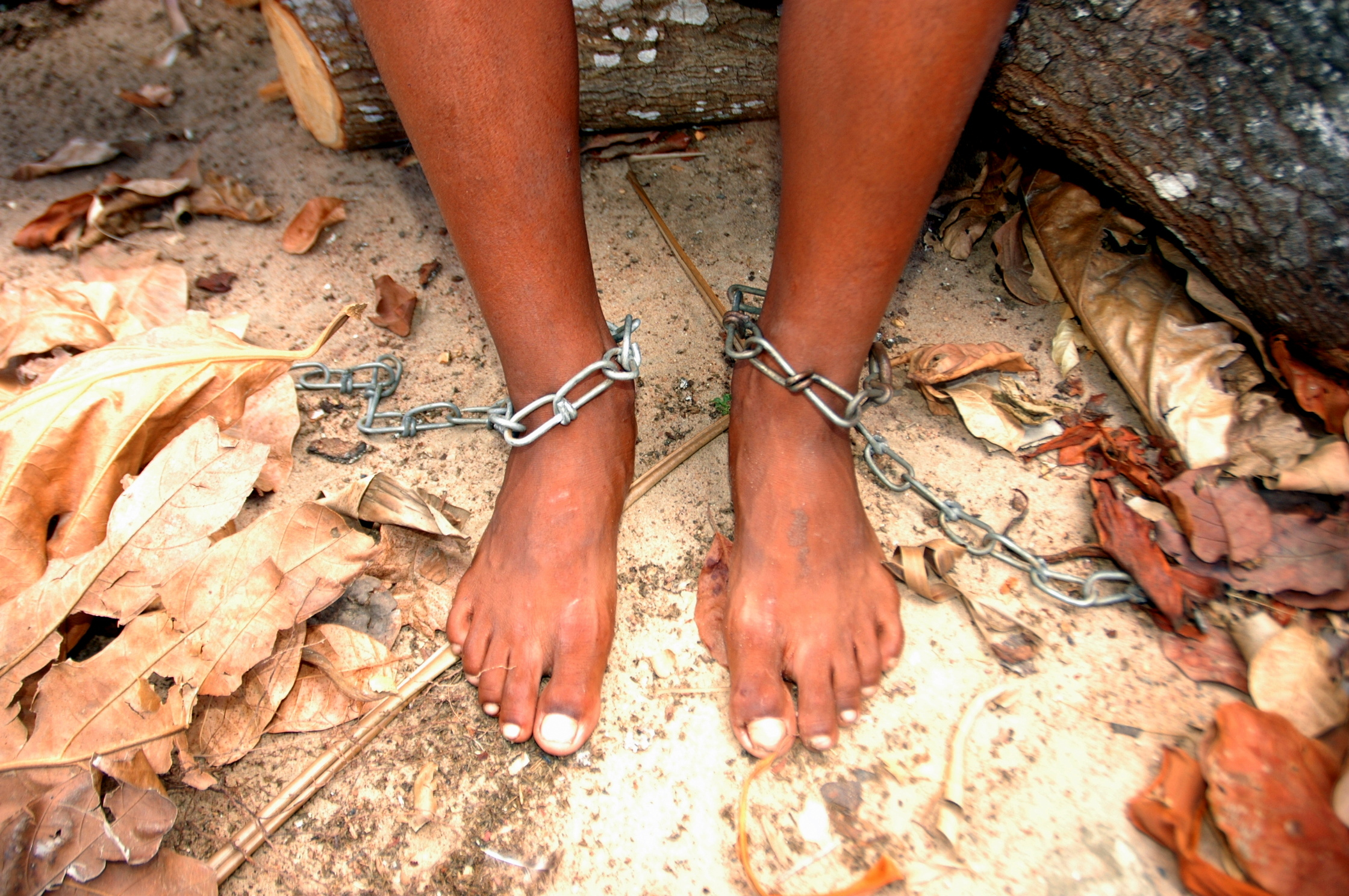A growing number of U.S. states are seeking to close what critics call a loophole in the 13th Amendment which abolished slavery but still effectively legalizes involuntary servitude as punishment for convicts.
The constitutional amendment, passed in 1865, abolished slavery except as punishment for crimes.
Voters in California and Nevada will have a chance to weigh in during November’s elections on whether to extend the ban to prisoners – following more than half a dozen other states that are part of the burgeoning movement.
“It’s one of the things from the Civil Rights era that we’re still fighting on and that needs to be changed,” said Christopher Blackwell, an incarcerated person in Washington state who writes about and advocates for prison reform.
Even when prisoners are paid for their work “you’re being forced to work for a very, very minimal amount of money, and that is slavery,” Blackwell said.
About 1.2 million people were held in U.S. state and federal prisons at the end of 2022.
Of those, some 800,000 people work, many of whom earn less than $1 per hour, said a study earlier this year by consultants Edgeworth Economics released by Worth Rises, an advocacy group campaigning for prisoners’ rights.
Officials at correctional institutions say prison labor provides incarcerated people with skills that will benefit them on release, and pushing up their wages could create costs for taxpayers.
“Our jobs provide incarcerated individuals with marketable job skills, as well as soft skills, that help them land jobs when they leave our facilities,” said Chris Wright, spokesperson for the Washington State Department of Corrections (DOC).
Prisoners’ jobs in the state pay up to $2.85 an hour – among the highest hourly wages in the country.
“There are waiting lists at most of our facilities for these positions,” said Wright. He said some jobs are offered on the basis of people in prison signing up voluntarily, while others are assigned.
But a growing number of states are pushing for change. Advocates working on the anti-slavery push said more than a dozen are eyeing potential legislation that could protect prisoners’ labor rights.
The current push has not followed a set political pattern, with both Republican and Democrat-controlled states pursuing the change, said Dennis Febo, lead organizer with the Abolish Slavery National Network (ASNN), an advocacy group.
“Red and blue don’t matter – at all,” he said, referencing the colors associated with the two main political parties.
“We’ve had so many white people stand up on this and really make a change, and we’ve had people of color fighting (it). So it hasn’t looked like race; it hasn’t looked like political affiliation.”
GROWING MOMENTUM FOR CHANGE?
Rhode Island was the first state to ban slavery in all forms through its state constitution, in 1843.
Voters in Oregon, Utah, Colorado, Nebraska, Tennessee, Alabama and Vermont all passed ballot amendments to formally end slavery as punishment in recent years, though some are still in the process of implementing them.
More than a dozen other states including New Jersey, Texas, and Minnesota have recently weighed or are weighing similar legislation, according to ASNN.
In Nevada, voters will have a chance to weigh in on a ballot question in November asking whether the state’s constitution should be amended to remove language authorizing the use of slavery and involuntary servitude as a criminal punishment.
In neighboring California, voters will also consider a similar ballot initiative.
A spokesperson for the California Department of Corrections and Rehabilitation (CDCR) said they are still working on analyzing the costs of enacting the proposed measure.
The legislative process was an “emotional roller coaster,” said Jeronimo Aguilar, a policy analyst with the advocacy group Legal Services for Prisoners with Children.
“The saying, ‘As California goes, the country goes’ – I think that there’s a lot of truth in that,” Aguilar said.
“It’s been moving nationally, and I think now there could be even more momentum to really ignite a wildfire that spreads across the country.”
Lawmakers in the nation’s capital have also been pushing federal legislation that they have highlighted around Juneteenth, the national holiday on June 19 that commemorates ending slavery in the United States.
ECONOMIC CONCERNS
Opponents of such efforts have cited potential costs to states and disruptions at correctional facilities if the incarcerated suddenly earned higher wages or secured new rights to refuse work.
Washington state lawmakers considered raising the wages of incarcerated people to the state’s minimum wage last year, but the effort died amid concerns over the cost, according to the Seattle Times.
It would cost taxpayers $124 million per year if all those held in the state’s prisons earned at least the minimum wage for their work, according to the state’s Department of Corrections.
Another effort in California to secure a ballot initiative was derailed in 2022 after a fiscal impact statement estimated that boosting prisoners’ wages could cost $1.5 billion a year.
A first-of-its-kind study released earlier this year found that ending unpaid labor in U.S. prisons could net up to $20 billion per year, with increased wage costs more than offset by allowing prisoners to better support themselves and their families, and boost their earnings after release.
“You’re in here to rehabilitate and get ready to be back in society as a productive member,” said Blackwell, the incarcerated writer.
“They should be offering you work in here that would help you save money … not just use and abuse your labor.”
(Reuters)




















